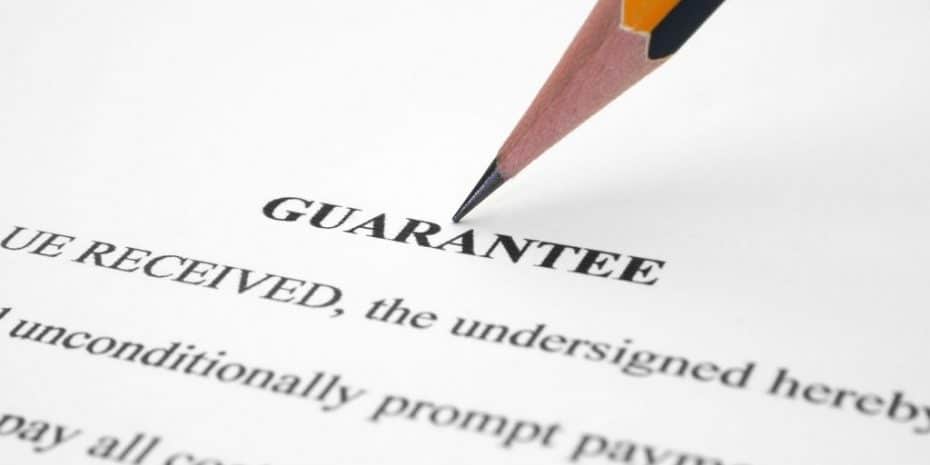What is a Guarantor?
REtipster does not provide legal advice. The information in this article can be impacted by many unique variables. Always consult with a qualified legal professional before taking action.
Guarantors Explained
A guarantor offers their guarantee as additional security to the lender. The guarantor promises to fulfill the borrower’s or lessee’s financial commitment if they are unable to fully repay the loan. Mortgages, lease agreements, purchases on credit, real estate loans, student loans, business loans and car loans are common examples of agreements that may involve guarantors.
Guarantor vs. Co-signer
Although the terms guarantor and co-signer are often used interchangeably, they are not necessarily the same.
Borrowers and tenants are responsible for making payments on their loan or lease. Co-signers and guarantors become liable in the event of a default by a borrower or tenant. Co-signers have the same liability as a borrower or tenant. The liability of a co-signer is as unconditional or unlimited as a borrower or tenant.
In the event of default by the borrower or tenant, the liability of a guarantor is often the same as the borrower or tenant. However, in some cases, the liability of a guarantor may be different. For example, the liability of a guarantor may be conditioned on collecting from the borrower first, may be limited in amount, or may be restricted to specific collateral like a cash account.
If the guarantee pertains to ownership of a property or asset, co-signers or guarantors typically do not have shared ownership of that property or asset. For example, the guarantor may not be on the title of the real estate, car, boat, or other assets being financed. If the lender and borrower agree that additional guarantees are an appropriate solution that will further enhance the credit package to be financed, guarantees may also be required from entities or individuals who do not have ownership of the asset being financed.
Who Can Be a Guarantor?
A guarantor is usually someone with a good credit history, a reliable income, and financial statements to show they can step in and pay the loan or lease if needed.
The guarantor is typically required to be over the age of 18, a legal resident of the country where the agreement takes place, and a third-party member to the agreement.
In some cases, an individual can act as the guarantor of a debt or obligation of a company. For example, if a company is borrowing money or entering into a contractual obligation, an individual may guarantee the company’s payment of the debt or performance of the contract. A lender or landlord may feel that a company does not have sufficient credit or assets to make the payment or perform the contract. In these circumstances, some financial institutions will ask an individual with excellent credit or sufficient net worth to guarantee payment or performance by the company,
Benefits of a Guarantor
Landlords and lenders will typically ask individuals with poor or no credit history to have a guarantor in their agreement. Examples of a poor credit history include late payments, loan defaults, bankruptcies, and foreclosures. Having a guarantor with a good credit score or net worth can increase the chances of an individual qualifying for a lease or a loan.
Individuals without rental history will often be required to have a guarantor of their lease. This also applies to tenants who have previous evictions or late payments on their rental records.
Many landlords will expect their tenants to earn a monthly income at least 3 times higher than the monthly rent amount (rent should account for ⅓ of their income) or an annual income that is 40 times higher than the monthly rent price. Borrowers who do not have a strong enough personal financial statement or tenants who do not have enough income or a consistent history of employment can benefit from a third-party guarantor. In addition to using their income as proof, guarantors can also use their assets as collateral to meet the financial requirements.
Risks of a Guarantor
If the tenant or borrower fails to make payments according to the agreement, the guarantor may be more than just financially at risk.
Below are examples of risks that a guarantor may face when repaying a debt:
- In the event of default, the guarantor may have difficulty qualifying for a loan. Due to the increased financial burden of paying another person’s debt, the guarantor may not have sufficient income to meet the bank’s loan requirements. The additional debt can potentially lower the guarantor’s credit score as well.
- The guarantor may be responsible for paying more than just the original amount in the agreement. In addition to the principal amount, there can be penalty fees, increased interest rates, attorney fees, and other expenses.
- If the guarantor pledged an outside asset as collateral, the asset may be sold or repossessed to pay down the remaining debt.
Types of Guarantees
There are several different types of guarantees that a lender may require, and each one carries different consequences for the guarantor. Some common examples are:
- Unconditional Guarantee
- Conditional Guarantee
- Unlimited Unsecured Guarantee
- Unlimited Secured Guarantee
- Limited Unsecured Guarantee
- Limited Secured Guarantee
In each of these examples, the key words to pay attention to are “Unconditional” or Conditional”, “Limited” vs “Unlimited” and “Secured” vs. “Unsecured”.
Conditional vs. Unconditional Guarantee
When a guarantee is conditional, that means there are conditions on the requirement for the guarantor to pay the debt or obligation in the event of default.
When a guarantee is unconditional, that means there are no conditions on the requirement for the guarantor to pay the debt or obligation in the event of default.
For example, a guarantee may be conditioned, or subject to, the lender collecting from the original borrower. If, after making reasonable efforts to collect, the lender is still unable to obtain repayment of the debt or obligation from the original borrower, the lender may then pursue the guarantor for repayment of the loan. Alternatively, a guarantee may be conditioned upon a default which occurs within 2 years (i.e. – 2 years after the default has occurred, the guarantee goes away).
Limited vs. Unlimited Guarantee
When a guarantee is limited, there is an imposed limit on the amount of the loan the guarantor is required to pay back.
For example, if ABC Company takes out a business loan for $1,000,000, and the company is owned by 5 individuals, one of which only owns 5% of the company as a silent partner, that 5% owner may request that the lender limit their personal guarantee to a smaller portion of the overall loan amount, like 5% of $50,000. If the lender accepts, this minority owner wouldn’t be obligated to repay the entire loan balance in the event of default, only the $50,000 amount stated in their limited guarantee.
When a guarantee is unlimited, it means the guarantor is responsible for paying back the entire remaining loan balance, plus any additional fees, penalties attorneys’ fees, expenses of collection, or interest associated with the loan – regardless of what their ownership or involvement is with the borrower.
Even if a guarantor doesn’t have sufficient cash or assets to repay the loan, an unlimited guarantee typically gives the lender the authority to pursue the guarantor’s personal assets until they have been repaid in full (the guarantor’s retirement accounts, savings accounts, college savings accounts, and primary residence are all fair game).
Secured vs. Unsecured Guarantee
In the rare case that a guarantee is secured, the guarantor will specify certain assets that the lender may take as collateral to recoup their losses in the event of default.
In most instances, a guarantee will be unsecured, which means there are no specific assets being pledged or collateralized by the lender (such as a cash account, residence or equipment). However, signing a guarantee is still a big promise to make, because the guarantor is committing to pay back the loan by any means necessary, and the lender can pursue the guarantor’s remaining assets until the loan is repaid.
Even without specifying assets in a secured guarantee, an unsecured guarantee doesn’t necessarily let a guarantor off the hook. They are still required to repay the loan in some way, shape or form.
Reviewed by Mark H. Zietlow, Innovative Law Group








